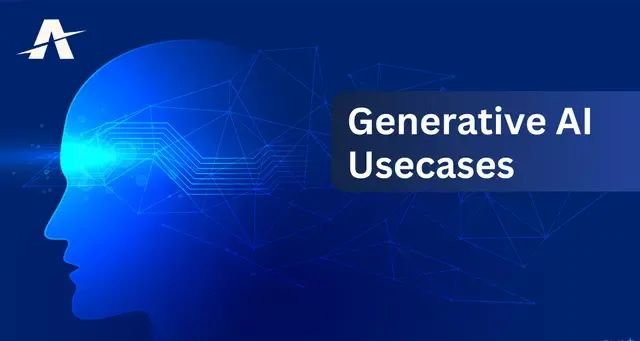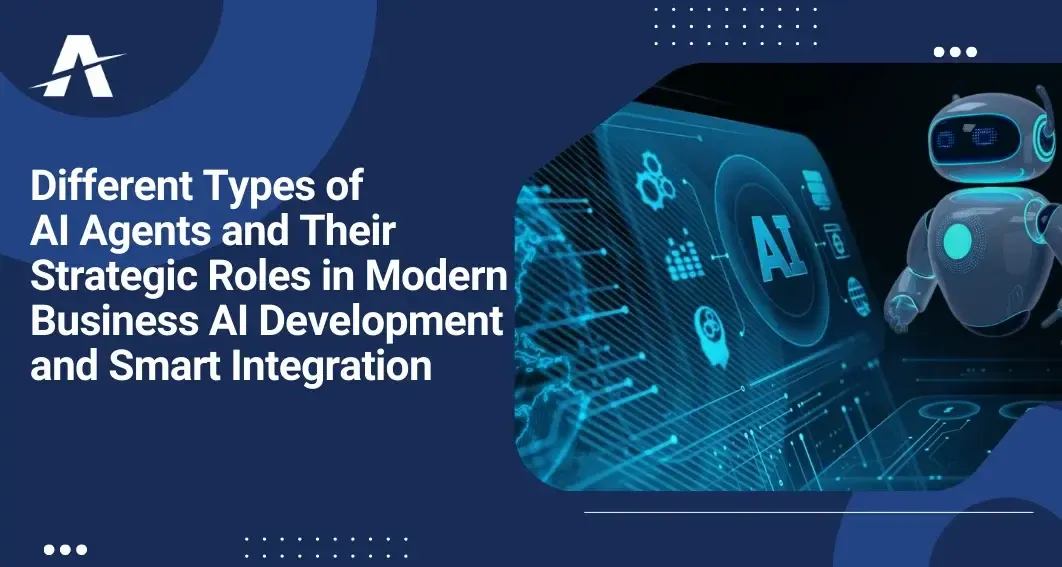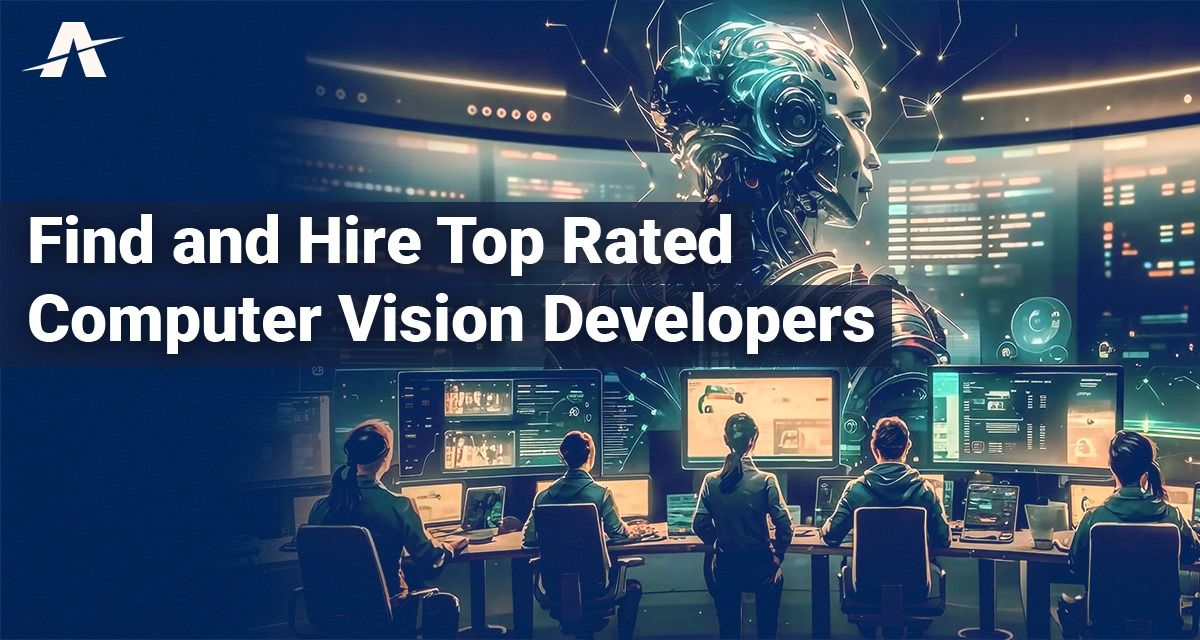
Artificial Intelligence (AI) agents are digital systems designed to perform tasks and make decisions like humans. In modern business, different types of AI agents play key roles in improving operations and growth. Reactive agents respond quickly to inputs and are useful in customer service chatbots.
Goal-based agents focus on achieving business objectives, such as sales or marketing targets. Learning agents adapt with data to improve decisions over time. Utility-based agents help businesses choose the best options by analyzing outcomes.
Together, these agents support automation, better decision-making, and smarter integration of AI in business processes. By using the right mix of AI agents, companies can reduce costs, increase efficiency, and create more personalized customer experiences.
What Are AI Agents?
An AI agent is a software entity that perceives its environment, processes information, and takes actions to achieve specific goals. Unlike traditional software, AI agents continuously learn, adapt, and optimize their decisions. They are the foundation of many business applications, ranging from virtual assistants like chatbots to intelligent decision-making systems used in supply chain and finance.
The effectiveness of AI agents lies in their ability to sense, think, and act. They rely on data, algorithms, and machine learning models to interpret real-world inputs and deliver actionable outcomes.
Different Types of AI Agents
Businesses can benefit from a wide range of AI agents, each tailored to different operational needs. Let's look at the main categories:
1. Simple Reflex Agents
Definition: Operate on condition–action rules (if-then logic).
How They Work: Respond directly to environmental inputs without memory or learning.
Business Example: Chatbots with pre-programmed responses, automated email replies.
Strategic Role: Ideal for basic automation tasks, reducing workload for repetitive queries.
2. Model-Based Reflex Agents
Definition: More advanced than simple reflex agents, these maintain an internal model of the environment.
How They Work: They use historical data and context to make better decisions.
Business Example: AI in inventory management that accounts for past trends to predict stock needs.
Strategic Role: Enable businesses to optimize resources, minimize errors, and provide context-aware solutions.
3. Goal-Based Agents
Definition: Agents that work towards achieving predefined goals rather than only reacting.
How They Work: They analyze different possibilities and select actions that bring them closer to business objectives.
Business Example: Route optimization systems in logistics or AI-driven sales forecasting tools.
Strategic Role: Support strategic decision-making and long-term planning.
4. Utility-Based Agents
Definition: Designed to maximize performance by evaluating multiple outcomes and selecting the most beneficial one.
How They Work: They use utility functions to balance between competing choices.
Business Example: AI in customer personalization that recommends products based on customer satisfaction scores.
Strategic Role: Enhance customer experience and maximize ROI by making profit-driven decisions.
5. Learning Agents
Definition: Agents capable of learning from experiences and improving over time.
How They Work: Use machine learning to adapt to new data and optimize processes.
Business Example: Fraud detection systems that continuously update their models to identify new fraud patterns.
Strategic Role: Provide long-term adaptability and resilience in changing business environments.
6. Multi-Agent Systems
Definition: Systems where multiple agents work together or compete to achieve tasks.
How They Work: Agents coordinate, share information, and solve complex problems collaboratively.
Business Example: Smart manufacturing where different AI agents manage machines, supply chains, and quality checks.
Strategic Role: Drive collaborative intelligence, scalability, and process optimization across departments.
Strategic Roles of AI Agents in Modern Business
AI agents are not just about automation; they reshape the way businesses operate. Here are their strategic roles:
1. Enhancing Operational Efficiency
AI agents streamline processes by automating repetitive tasks, improving workflows, and minimizing human errors. From customer service chatbots to robotic process automation (RPA), businesses gain significant efficiency improvements.
2. Improving Decision-Making
Goal-based and utility-based agents help leaders make informed decisions by analyzing large datasets, evaluating risks, and suggesting optimal solutions. This makes businesses more agile and competitive.
3. Customer Engagement and Experience
Virtual agents and recommendation engines personalize customer interactions, improve satisfaction, and foster loyalty. Personalized marketing powered by AI agents ensures higher conversion rates.
4. Data Management and Analysis
Learning agents analyze big data to discover hidden patterns, forecast trends, and provide actionable insights. This makes businesses more data-driven and future-ready.
5. Scalable Integration Across Business Units
With multi-agent systems, companies can integrate AI across HR, sales, finance, operations, and customer service seamlessly. This smart integration ensures consistent performance and communication across different departments.
Smart Integration of AI Agents in Business
Successful adoption of AI agents depends on strategic integration with existing systems. Here's how businesses can approach it:
Identify Key Business Challenges
Start by analyzing areas where AI agents can add measurable value, such as customer service, logistics, or finance.
Choose the Right Type of AI Agent
Match the agent type with the business need (e.g., reflex agents for automation, learning agents for adaptability).
Ensure Data Quality
Since AI relies on data, accurate and clean datasets are crucial for effective performance.
Adopt a Hybrid Approach
Combine multiple AI agents for complex workflows, enabling smart multi-agent systems.
Focus on Security and Compliance
Protect customer data and ensure compliance with regulations while deploying AI solutions.
Train and Upskill Teams
Employees should be trained to work alongside AI agents for seamless collaboration.
Benefits of Using AI Agents in Business
Reduced Costs: Automating repetitive tasks saves manpower and resources.
Scalability: AI agents adapt to business growth without requiring proportional increases in staff.
Innovation: They foster new business models, services, and personalized experiences.
Competitive Advantage: Businesses leveraging AI agents outperform competitors by making smarter decisions.
Resilience: Learning agents ensure adaptability in changing markets.
Future of AI Agents in Business
AI agents are evolving toward autonomous enterprises, where they will manage most operational and strategic tasks. With advancements in Generative AI, Natural Language Processing, and Machine Learning, future AI agents will become even more human-like in reasoning and communication. Businesses that embrace this transformation will lead industries with innovation, efficiency, and customer satisfaction.
FAQs
Q1. What are AI agents in business?
AI agents are intelligent software entities that perform tasks, make decisions, and solve problems by interacting with their environment, helping businesses automate and optimize operations.
Q2. Which type of AI agent is most useful for customer service?
Simple reflex agents and utility-based agents are widely used in customer service as chatbots and recommendation engines to provide instant responses and personalized experiences.
Q3. How do AI agents support business decision-making?
Goal-based and utility-based agents analyze data, evaluate multiple outcomes, and recommend strategies that align with business objectives, improving accuracy in decision-making.
Q4. Can AI agents work across multiple departments?
Yes. Multi-agent systems enable AI adoption across different departments like HR, finance, sales, and operations, ensuring integrated workflows and smarter collaboration.
Q5. What challenges do businesses face when integrating AI agents?
Challenges include poor data quality, high implementation costs, lack of skilled teams, and concerns around security and compliance. Overcoming these requires planning and expert support.
Q6. What is the future role of AI agents in businesses?
Future AI agents will drive autonomous enterprises, handling complex decision-making, predictive analytics, and personalized services, making businesses more adaptive and customer-focused.












